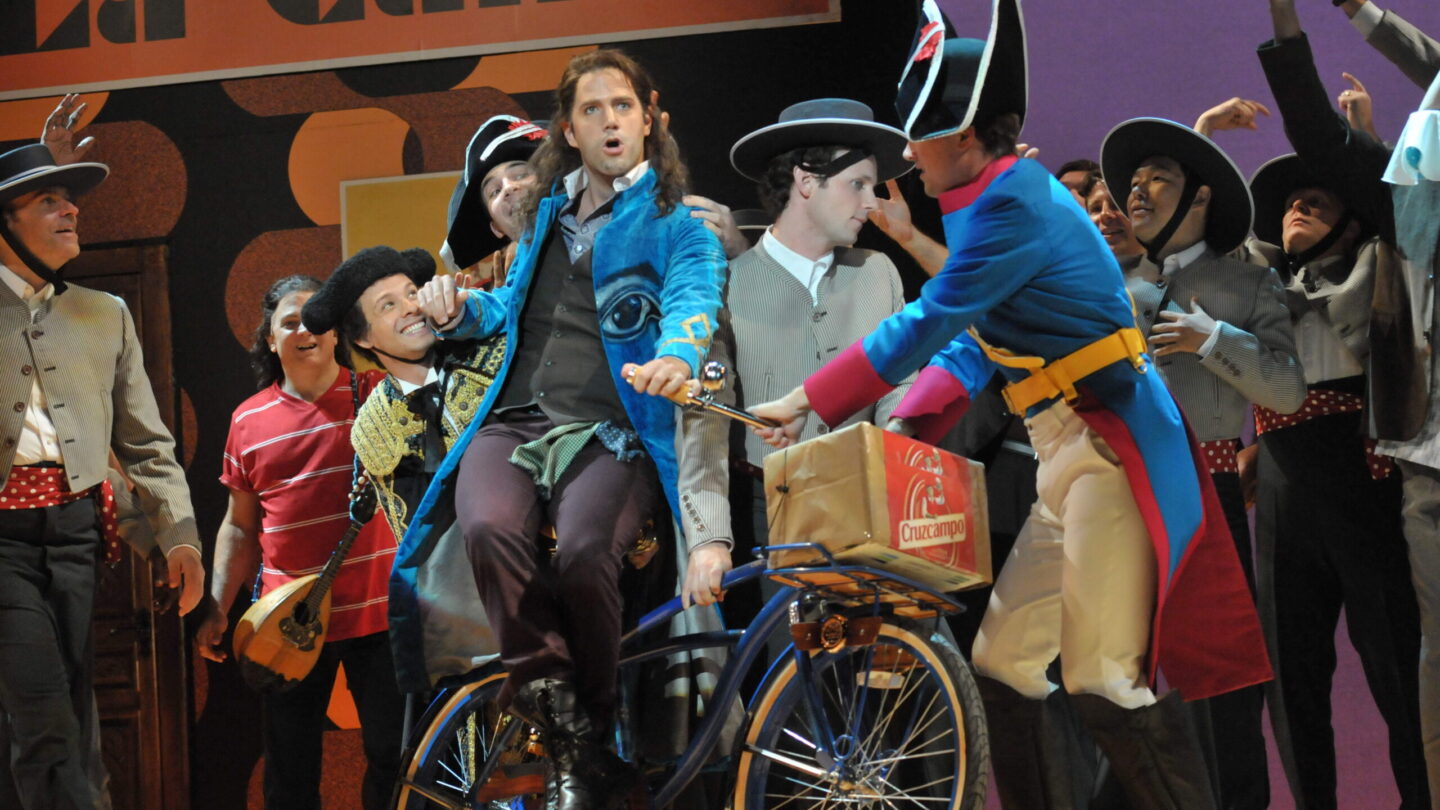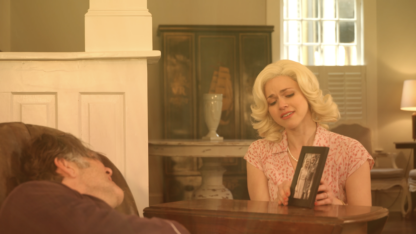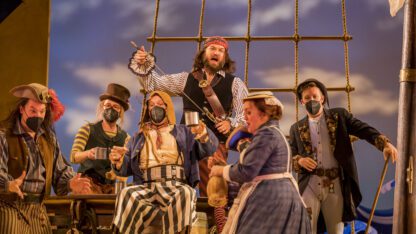If you don’t think you’re familiar with music by the composer Gioachino Rossini, you’d probably recognize his most memorable melody if you heard it. Most people know it from the classic 1950s “Bugs Bunny” episode, “The Rabbit of Seville.” The Looney Tunes send-up references Rossini’s 1816 opera “The Barber of Seville,” one of the greatest works of comic opera. The Atlanta Opera will perform “The Barber of Seville” beginning March 5 at the Cobb Energy Performing Arts Centre with music director and conductor Arthur Fagan. He joined “City Lights” host Lois Reitzes via Zoom to talk about the works of Rossini and this particularly delightful earworm of a masterpiece opera.
Interview highlights:
Beyond Looney Toons, other cultural touchstones made iconic by Rossini:
“[Rossini’s] ‘William Tell Overture’ was also used in ‘The Lone Ranger,’” said Fagan. “It’s the ‘Allegros’ from both of these overtures that are our most famous, although the ‘William Tell Overture’ also has a storm scene. It says that Rossini’s music is extremely accessible, even to modern-day audiences. ’Barber of Seville’ was written in 1816, and it’s not only the overture, but it’s also the ‘Largo al Factotum,’ the famous Figaro aria that is known to really have widespread popularity as well.”
What makes “The Barber of Seville” so lovable:
“Figaro is first introduced to the public with the aria. He’s not on stage beforehand, and he comes out, and he’s the guy who takes care of everything in town. I mean, he’s officially the barber, but he does all kinds of different things. And he says people always want him. ‘Figaro qua, Figaro la.’ Everybody wants him … Each time he says the ‘Figaro, Figaro, Figaro,’ about ten times, he’s talking about somebody else always calling him.”
“‘The Barber’ is probably the most hysterically funny opera that exists. It’s as lighthearted as it gets,” said Fagan.
The challenge of pulling off “The Barber” as a musician:
“There is extremely fast and extremely brilliant writing. It takes a great deal of virtuosity from the wind players; at times, also from the string players,” said Fagan. “One of the issues with doing operas like this in a huge hall like the Cobb Energy Centre … is that the music was originally conceived for a much smaller theater. So the wind players are quite far under, sometimes even under the lip of the stage. And I sometimes feel like I have to conduct with one hand down for the orchestra, with another hand up for the singers.”
“I think we need bigger voices nowadays for operas of this genre, Mozart operas as well, when we are performing them in a very big hall,” Fagan said. “The halls for which these operas were initially conceived were much smaller, and also … generally the dynamic level of Italian orchestra is not as strong as the dynamic level of, let’s say an American orchestra. And at the time of Rossini, the violins and all the string players, they played from gut strings, which had a much warmer and softer quality than the metallic strings that we use in orchestras nowadays.”
The Atlanta Opera’s performance of Rossini’s opera “The Barber of Seville” takes place from March 5-13 at the Cobb Energy Performing Arts Centre. More information and tickets are available at atlantaopera.org.









